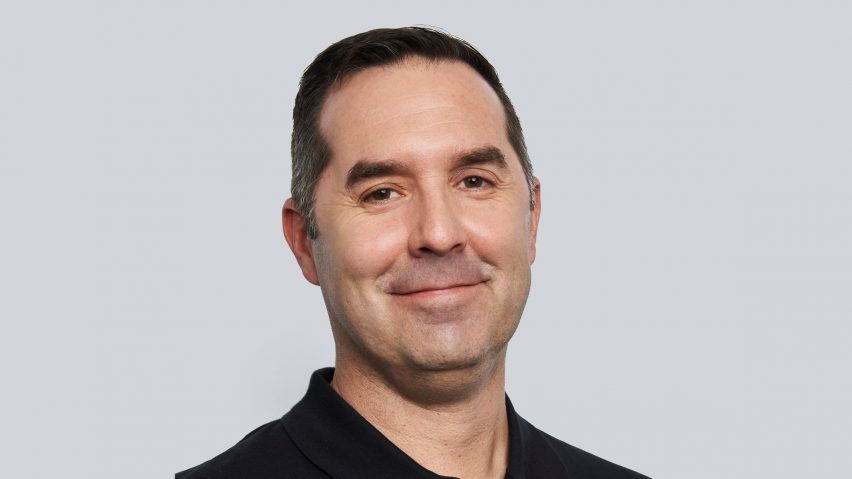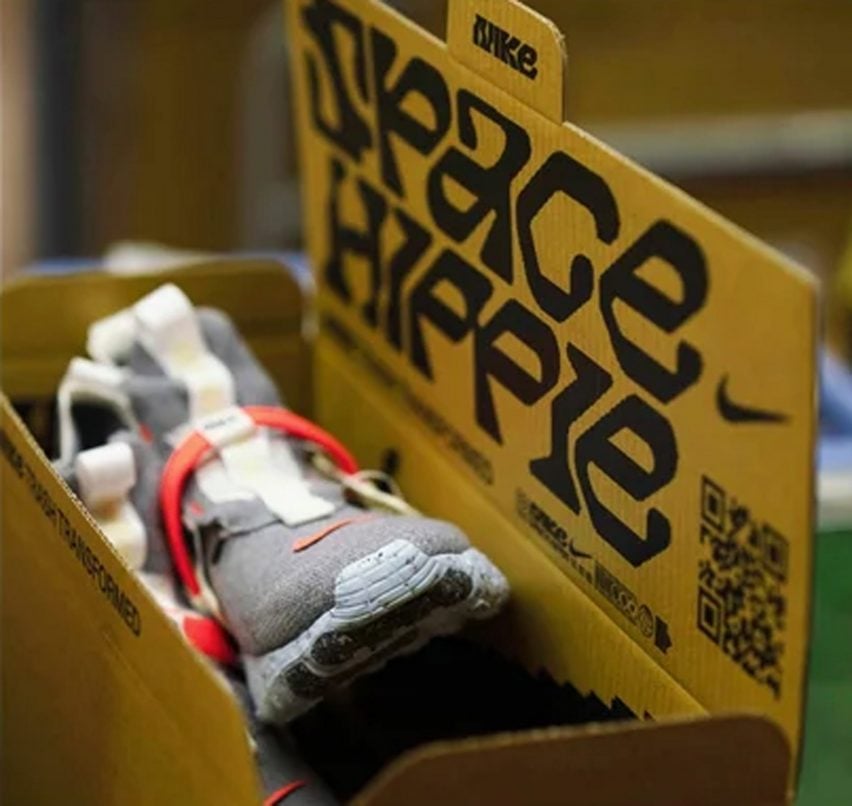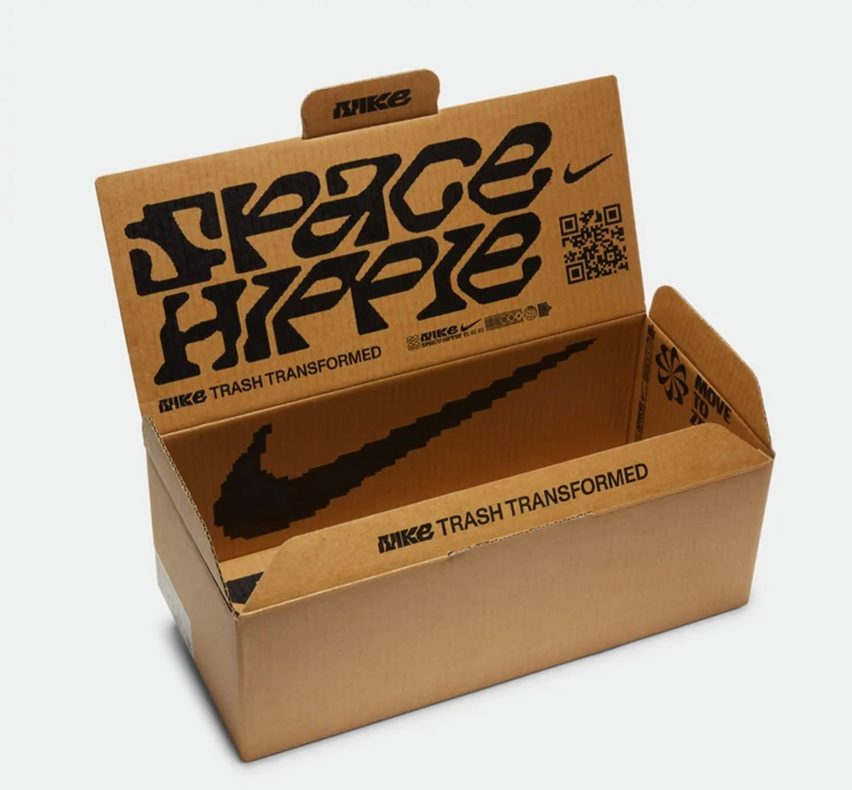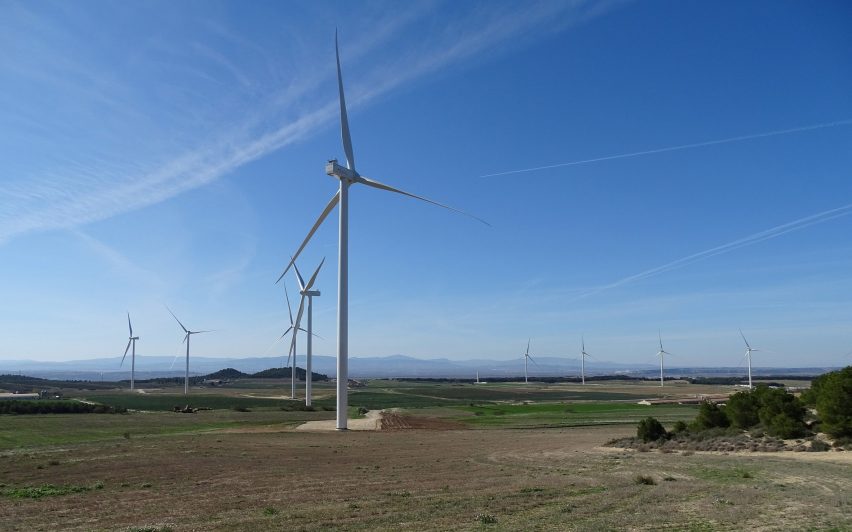
"Operational progress is what moves the needle" towards zero-carbon design says Nike's head of sustainability
Sportswear brand Nike is prioritising major operational changes over launching sustainable products as part of its Move to Zero initiative to become a carbon-neutral company, according to chief sustainability officer Noel Kinder.
Under Move to Zero, which was announced last year, Nike has set itself the goal of reducing carbon emissions across its global supply chain by 30 per cent by 2030 as the first step towards becoming a zero-carbon and zero-waste company.
This initiative saw the brand release the Space Hippie trainers earlier this year, which have the lowest carbon impact of any shoe made by the sportswear brand.
Operational changes are what "lowers our carbon footprint"
However, Kinder believes that it is the less glamorous operational changes, such as switching to green energy and reducing packaging waste, that will have the biggest impact on Nike's carbon footprint.
"It's hard not to get super excited about product, basically because it's so unique," he said at a roundtable event during the Climate Week NYC summit.
"But there are really kind of three major areas that I would point to in terms of operational progress. And really operational progress is what moves the needle."
"It's really what lowers our carbon footprint or our waste footprint, which is the spirit of Move to Zero, zero carbon, zero waste," he added.

Nike has made a series of changes to how it operates including reducing the weight and size of its packaging, replacing plastic bags with paper versions in its stores and establishing a network of renewable energy facilities to power its factories and offices.
"We're really starting to look into packaging innovation"
Kinder pointed to packaging as an area where the company is reducing its carbon footprint. The company has committed to phasing out single-use plastics by 2030 and is aiming to remove single-use plastic bags from all its retail stores by 2021.
"The first thing that I would point to is packaging, and it's probably not the most sexy thing that we would talk about, but it's really important from just minimizing the amount of weight that goes into a shipment, [meaning] less carbon embedded when products are shipped."

The recently released Space Hippie trainers were shipped in a smaller, lighter box that was created by Nike to reduce the amount of material used and the emissions from transportation.
"The Space Hippie box was completely re-engineered to minimize the amount of material that was included in it, and actually be able to be shipped in a single box rather than have yet another box wrapped around it," explained Kinder.
"So it's interesting that we pride ourselves on product innovation, but we're really starting to look into packaging innovation as well."
"Renewable energy is a huge lever to lower carbon footprint"
Along with packaging, Nike is also focusing on where its electricity comes from. The company is aiming to have all its facilities powered by renewable sources by 2025.
"Renewable energy obviously is a huge lever to lower the carbon footprint," said Kinder. "We are committed to drive our owned and operated facilities for 100 per cent renewable energy by 2025."
Nike's offices and factories in North America are supplied with electricity from the Karankawa Wind Farm in Texas along with the Leaning Juniper and Juniper Canyon facilities near its Oregon headquarters, while in Europe its operations are powered by a wind farm in Navarre, northern Spain

"We've already achieved our goal in North America. And actually, in October, we will celebrate the opening of the Cavar wind farm in Spain, which will enable us to power and operate facilities in Europe with 100 per cent renewable energy as well," he continued.
"So that gives us an aggregate of about 75 per cent of our global operations powered by renewable energy. So I think we've got a fighting chance to get to 2025."
Coronavirus has "really catalyzed people's passion for improving the world"
Kinder believes that the current pandemic will focus people within the company and it customers on environmental concerns, which will help it meet its aim of reducing its carbon footprint by 30 per cent by 2030 in line with the 2015 Paris Agreement.
"I think the pandemic, climate change, everything that's going on around us right now, really catalyzed people's passion for improving the world and what a great moment to be sitting in my chair at the helm of a sustainability effort behind a brand like Nike and really using that brand as a way to catalyst change in the world."
This echoes the thoughts of Nike's sustainable design lead Noah Murphy-Reinhertz who told Dezeen in May that "we are in the midst of two global crises" and that the pandemic will bring an "intense focus" on the world's environmental crisis.
Corporations pledge to eliminate emissions
Eliminating carbon emissions is a key part of the fight against climate change, with several global corporations making pledges to eliminate their own emissions.
In July, Apple announced plans to become carbon neutral by 2030 while Microsoft joined multinationals including Unilever and Mercedes-Benz to make the same commitment as members of the Transform to Net Zero initiative.
Last week, China pledged to become carbon zero before 2060.